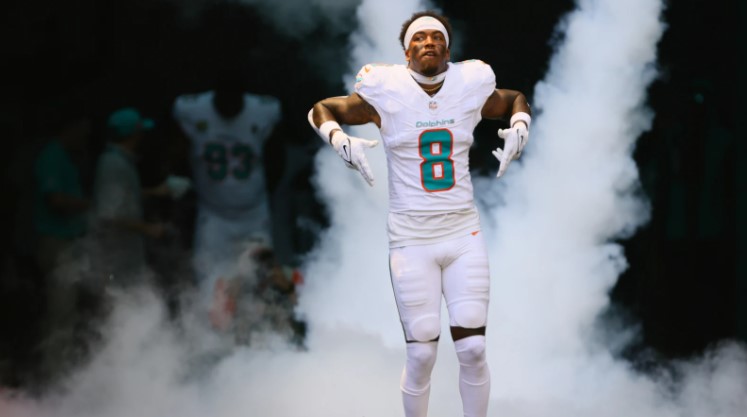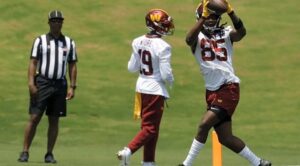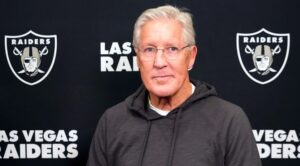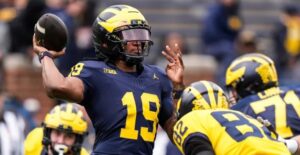
With the NFL trade deadline approaching, a major decision looms for the Miami Dolphins: should they retain or trade star safety Jevon Holland? The Dolphins are at a pivotal point in their season, and their performance in upcoming games against the Colts, Cardinals, and Bills will likely determine whether they become buyers or sellers at the trade deadline. If Miami struggles in these matchups, their chances of making the playoffs will dwindle, and it may be time to look ahead to the future rather than focus on a lost season.
Jevon Holland, one of Miami’s standout players and a key piece of their defense, is in the final year of his contract. Despite his value, Miami has prioritized contract extensions for other players such as Tyreek Hill, Jaylen Waddle, Jalen Ramsey, and Tua Tagovailoa. Holland, while a critical part of the team, plays the safety position, which is not typically viewed as a “premium” position by Dolphins general manager Chris Grier. Grier’s track record suggests he tends to reserve big-money contracts for positions like quarterback, wide receiver, offensive tackle, edge rusher, and cornerback—making Holland’s future in Miami uncertain.
The Dolphins have limited salary cap flexibility for the 2025 offseason, entering with one of the worst cap situations in the league. As a result, they may find it difficult to offer Holland a new contract, especially given the rising market for safeties. Last offseason, Antoine Winfield signed a four-year, $84.1 million deal, setting a high bar for future contracts in the position. Holland, arguably on par with Winfield, would likely seek even more compensation. While Miami could use the franchise tag on Holland, it would require clearing significant cap space, making it an unlikely option.
In light of these challenges, trading Holland before the deadline might be the best course of action for the Dolphins if they fall out of playoff contention. Trading him now could net Miami valuable draft picks, helping them rebuild for the future. A second or third-round pick in 2025 could be a more immediate benefit than waiting for a compensatory pick in 2026 if Holland leaves in free agency. Moreover, compensatory picks are tied to restrictions that prevent a team from making significant free-agent signings, further complicating Miami’s offseason strategy.
If the Dolphins manage to turn their season around and win upcoming games, holding onto Holland could make sense. However, if they continue to struggle, parting ways with him would align with long-term planning. Grier’s decision over the next few weeks will be critical in shaping Miami’s future, and Holland’s status will be something to watch closely as the trade deadline approaches.





